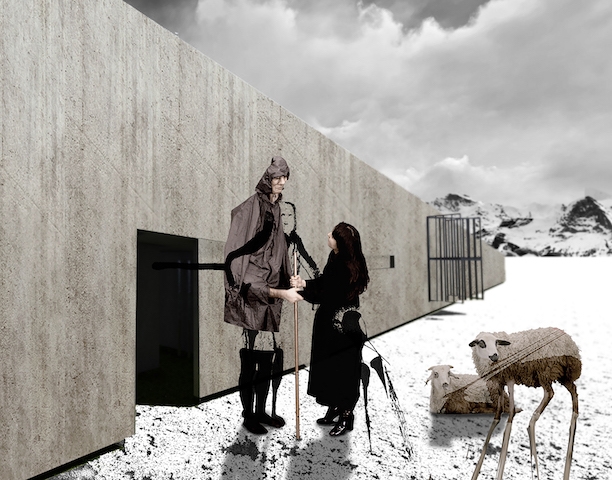ArtReview sent a questionnaire to artists and curators exhibiting in and curating the various national pavilions of the 2019 Venice Biennale, the responses to which will be published daily in the lead-up to the Venice Biennale opening on 11 May.
Inci Eviner represents Turkey. The pavilion is in the Arsenale.
What can you tell us about your exhibition plans for Venice?
I have always been interested in how human definitions, theory and politics have evolved throughout history, and how they affect our daily life. I’d like to explore gaps between theory and life. Putting the conflicts side-by-side and observing how they change each other slowly. Since Hannah Arendt, the perception of Human Kind has significantly changed, and we, hopelessly, have been still searching the redefinition of humankind.
I wondered if it is possible to create a device to make visible and reveal how the capitalist system and ideologies and humankind are working together through its institutions. Hence I thought an architectural installation might provide a platform for bringing together different visual forms of expressions where moving image, objects, drawings and architectural installation blend together. I have been working on a stage with multiple layers for a long time, to make this visible. There will be actors on this stage, as well as visitors who continue moving past and alongside the walls of the installation. During this process of editing the performance and installation, the pains and pleasures of myths, memories and the habits of daily life have to be picked up one by one and put into place.
I try to both include and exclude myself in these events in order to bear witness. The responsibility of being a witness requires the questioning of being us.
My art practice required a long process and it uses various media such as installation, video, drawings, and live performance. Moving and following with ideas and sketches together in the space which contains many personal traces coming from subconscious is quite exciting for me. This also includes many personal hints coming from my culture.
What does it mean to ‘represent’ your country? Do you find it an honour or is it problematic?
I believe that the concept of national identity has dissolved and therefore the concept of ‘representing a country’ has already become nostalgic. My primary concern as an artist is finding ways to create my works freely. It is worth considering the representation of ‘the other’, moreover who is representing and how it is represented. I’m an artist from Turkey as well as the rest of the world.
Is your work transnational or rooted in the local?
Many of the images I use come from my personal memory and my culture. The current political situation in Turkey is intense. I can’t imagine artworks produced here can exist without political connotations. I guess art can give hope to change something in the society.
If you’ve been to the biennale before, what’s your earliest or best memory from Venice?
Many years ago, when I attended the Venice Biennale for the first time, I came across Louise Bourgeois’s terrific exhibition in the US Pavilion. Her work encouraged me a lot.
The Venice Biennale runs 11 May – 24 November
